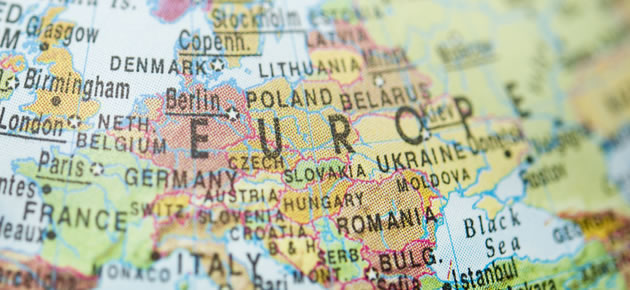While the Euro spent much of the day in a stronger position against the Pound, the Euro to GBP pairing faltered after German inflation data failed to meet forecasts.
Earlier in European trading the Euro advanced on Sterling as the British currency fluctuated in response to the news that the UK’s economy expanded by less than forecast in the first quarter of the year.
While economists had expected UK GDP to advance by 0.9 per cent, it actually grew by 0.8 per cent.
This was still up on the 0.7 per cent growth recorded in the final quarter of 2013, but the report wasn’t quite as encouraging as many had hoped.
The growth data prompted this response from economist James Knightley; ‘With business surveys, employment and confidence all continuing to show significant strength we remain upbeat on the UK’s growth prospects. The risks remain skewed toward earlier Bank of England policy tightening than the second quarter of 2015 point currently pencilled in by markets.’
However, although the Pound initially dipped after the GDP report was released, it recovered ground against the Euro as Germany’s consumer price index was published.
According to Federal Statistics Office figures, German EU harmonised inflation advanced by 1.1 per cent in March instead of the 1.3 per cent expected.
Non EU harmonised consumer prices climbed by 1.3 per cent in April year-on-year following a 0.2 per cent month-on-month decline.
This result decreases the odds of tomorrow’s Eurozone CPI impressing and adds to the case for the European Central Bank introducing additional stimulus in order to shore up domestic economic growth.
As one London-based currency strategist observed; ‘Today’s German data are a clear downward surprise. It may not be enough to lift Euro-area inflation to the expected 0.8 per cent. Downside risks to our call for Euro area inflation are now clearly prevailing.’
The Euro broadly softened in response to the figures, edging lower against the Pound and US Dollar.
Tomorrow’s inflation data for the Eurozone will be of even greater interest tomorrow in light of today’s result.
GBP/EUR movement could also be caused by German employment figures.
Euro (EUR) Exchange Rates
[table width=”100%” colwidth=”50|50|50|50|50″ colalign=”left|left|left|left|left”]
Currency, ,Currency,Rate ,
Euro,
Euro,
Euro,
Euro,
Euro,
[/table]
